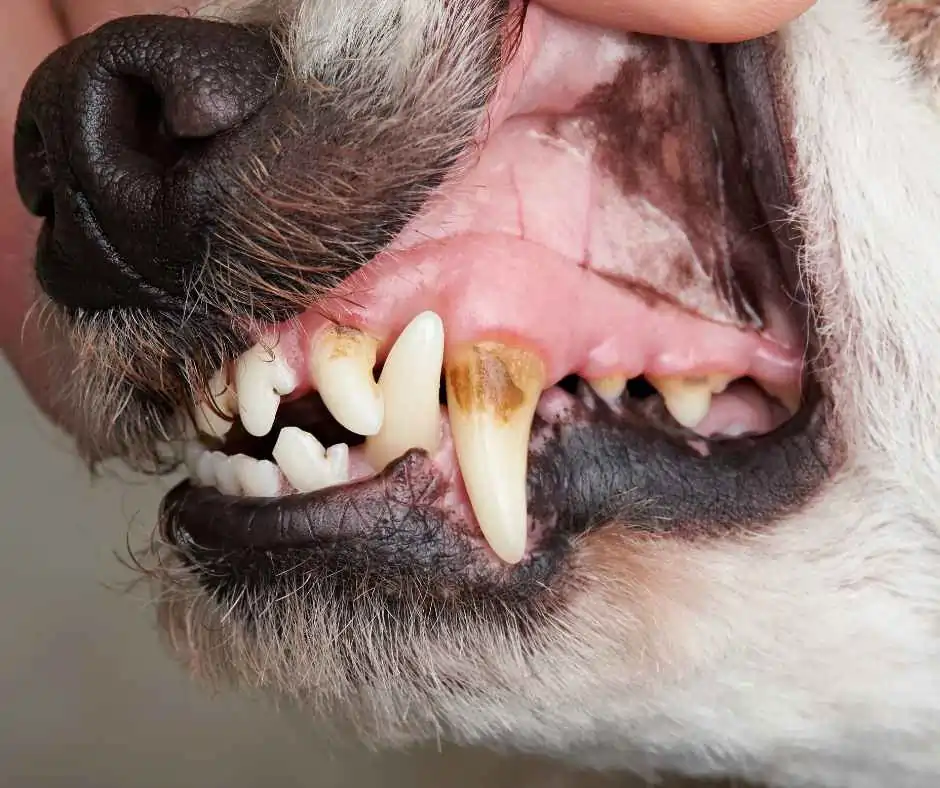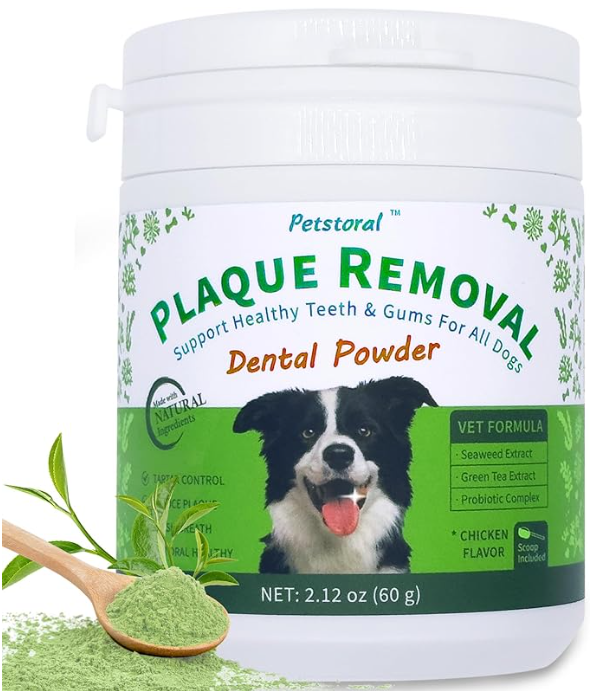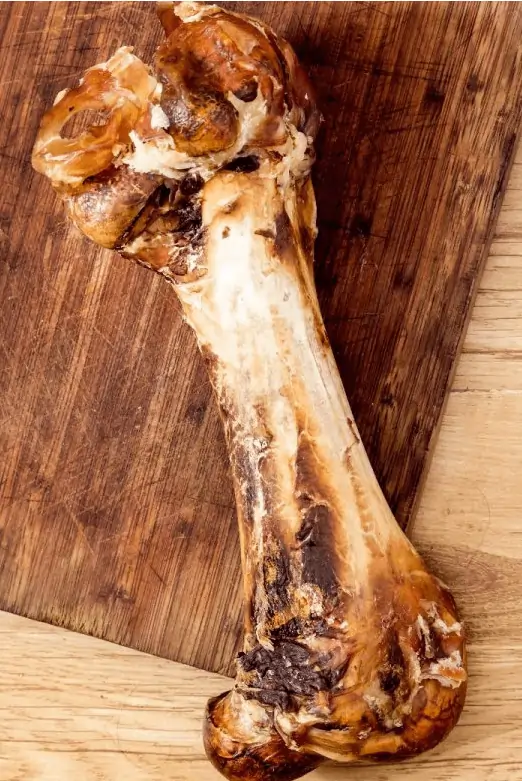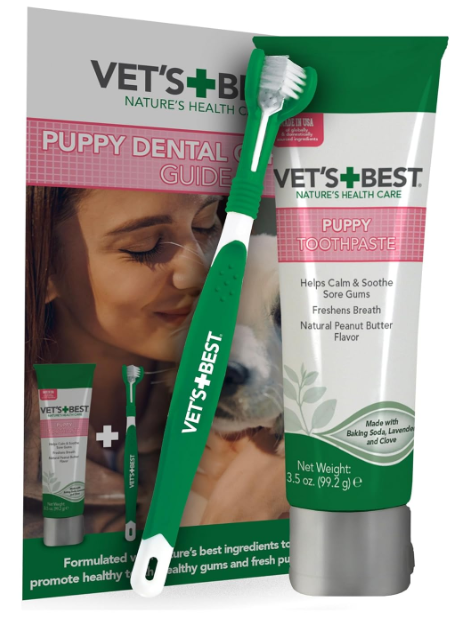Pet Dental Health is a very sensitive topic for me, because one of my Yorkies teeth were removed due to teeth rotting. Yes, I kind of feel ashamed about it, but when you have dogs all your life and they never had issues…dental for dogs is the last thing on your mind.
So, because of this “trauma” I will discuss what I have learned about Pet Dental Health and how you can go from bad breath to bright teeth by implementing preventive care. So let’s start with the basics.

Pet Dental Health Basics
Table of Contents
Dental care is crucial for your pet’s overall health and well-being. Dogs and cats can suffer from dental problems such as plaque buildup, tartar accumulation, gum disease, and tooth decay. These issues can cause pain, discomfort, and difficulty eating, which can affect their overall quality of life. By prioritizing dental care, you can help prevent these problems and ensure that your pet’s teeth and gums remain healthy:
- Prevent plaque and tartar buildup: Regular brushing and appropriate dental treats or toys can help reduce the accumulation of plaque and tartar on your pet’s teeth, which can lead to dental issues.
- Maintain fresh breath: Proper dental care helps prevent bad breath, which can be a sign of dental problems.
- Improve overall health: Dental issues in pets can lead to pain, infection, and other health problems. By maintaining good dental hygiene, you can help prevent these issues and promote your pet’s overall health.
Pet Dental Health: Common Dental Issues
- Plaque and tartar buildup: Plaque is a sticky film that forms on the teeth, and if not removed, it hardens into tartar. Tartar can contribute to gum disease and tooth decay.
- Gum disease: Gum disease, also known as periodontal disease, is an inflammation of the gums caused by bacteria in the mouth. It can lead to gum recession, tooth loss, and other oral health problems.
- Tooth decay: Like humans, pets can also experience tooth decay, which can result in cavities and tooth infections.
It’s important to be vigilant and watch for signs of dental problems in your pet. Common signs include bad breath, drooling, pawing at the mouth, reluctance to eat, and changes in chewing habits.If you notice any of these signs, it’s crucial to seek veterinary care promptly.
Signs of Dental Problems
Bad Breath
One of the most noticeable signs of dental problems in pets is bad breath. If your pet’s breath has an unpleasant odor, it could indicate underlying dental issues. Bad breath in pets is often caused by poor dental hygiene, which can lead to gum disease, tooth decay, and the buildup of plaque and tartar.
Regular teeth brushing is essential for maintaining good oral hygiene in pets. Introduce a pet-specific toothbrush and toothpaste into your pet’s routine. Dental treats or toys can also help promote good oral health by reducing plaque and tartar buildup. If your pet’s bad breath persists despite proper dental care, it is recommended to consult your veterinarian for a thorough dental examination.
Tooth Decay
Tooth decay is another common dental problem in pets. Similar to humans, pets’ teeth can develop cavities that result from the breakdown of the tooth enamel. Poor dental hygiene, a high-sugar diet, or certain medical conditions can contribute to tooth decay in pets.
Signs of tooth decay in pets may include visible holes or pits in the teeth, sensitivity to touch or pressure around the mouth, and hesitation or reluctance to eat. If you suspect your pet has tooth decay, it’s important to seek veterinary care promptly. Your veterinarian can assess the extent of the decay and recommend appropriate treatment, which may involve dental cleanings, fillings, or extractions.
Gum Disease

Gum disease, or periodontal disease, is a common dental issue in pets. It occurs when plaque and tartar buildup on the teeth lead to inflammation and infection of the gums. If left untreated, gum disease can cause tooth loss and potentially affect your pet’s overall health.
Signs of gum disease in pets include red, swollen, or bleeding gums, receding gumline, loose teeth, and difficulty eating. Regular dental care, including teeth brushing and professional cleanings, can help prevent gum disease. If you notice any signs of gum disease in your pet, it’s crucial to consult your veterinarian for a thorough dental examination and appropriate treatment.
By being attentive to signs of dental problems like bad breath, tooth decay, and gum disease, you can take proactive steps to maintain your pet’s oral health. Don’t underestimate the importance of regular dental care for your furry friend’s overall well-being.
If you’re interested in learning more about pet health, check out our articles on pet health insurance, holistic pet health, pet health nutrition, and pet health supplements.
Preventive Measures
Taking preventive measures is key to maintaining pet dental health. Regular teeth brushing and the use of dental treats and toys can help keep their teeth and gums in good condition.
Regular Teeth Brushing
Introducing regular teeth brushing into your pet’s routine is an important step in promoting good oral health. Use a pet-specific toothbrush and toothpaste to gently clean their teeth. It’s crucial to never use human toothpaste as it can be harmful to pets. Brushing your pet’s teeth at least two to three times a week helps to remove plaque and prevent tartar buildup, reducing the risk of dental issues.
To make the teeth brushing experience more enjoyable for your pet, start with short sessions and gradually increase the duration over time. Be patient and provide positive reinforcement to create a positive association with teeth brushing. If your pet is resistant to having their teeth brushed, consult with a veterinarian for alternative dental care options
Dental Treats and Toys
Dental treats and toys can be a beneficial addition to your pet’s dental care routine. These products are specifically designed to promote good oral health by reducing plaque and tartar buildup. Dental treats are usually formulated with ingredients that help clean the teeth as your pet chews on them.
When selecting dental treats and toys, look for those recommended by veterinarians and specifically designed for your pet’s size and breed. It’s important to choose products that are safe and durable to prevent choking hazards. Regular use of dental treats and toys can help maintain your pet’s dental hygiene between teeth brushing sessions.
Remember, while dental treats and toys are helpful, they should not replace regular teeth brushing. Incorporate these preventive measures into your pet’s dental care routine to ensure their teeth and gums stay healthy.
By implementing regular teeth brushing and incorporating dental treats and toys, you can proactively contribute to your pet’s dental health. Along with preventive measures, it’s essential to schedule regular veterinary check-ups to monitor your pet’s oral health and address any potential dental issues.
Veterinary Dental Care Check Ups
Regular dental check-ups by a veterinarian are fundamental in preventing and addressing dental issues in pets. During a veterinary dental check-up, your veterinarian will conduct a comprehensive examination of your pet’s teeth and gums. They will assess the overall oral health, identify any dental issues, and recommend appropriate treatments or preventive measures.
These check-ups are essential for early detection of dental problems such as plaque buildup, tartar accumulation, gum disease, and tooth decay. Catching these issues early allows for timely intervention, preventing further complications and discomfort for your pet.
To maintain your pet’s dental health, it is generally recommended to schedule dental check-ups at least once a year. However, the frequency may vary depending on your pet’s specific needs and oral health condition. Your veterinarian will provide guidance on the appropriate schedule for your pet.
Professional Cleanings
Professional dental cleanings performed by a veterinarian are vital for maintaining your pet’s oral health. While regular at-home dental care, such as teeth brushing and dental chews, helps to control plaque and tartar accumulation, professional cleanings go beyond what can be achieved at home.



During a professional dental cleaning, your veterinarian will remove plaque and tartar from your pet’s teeth using specialized tools. They will also assess the overall oral health, clean below the gumline, and polish the teeth to minimize future plaque buildup.
Professional cleanings are typically performed under anesthesia to ensure your pet’s comfort and safety. Anesthesia allows for a thorough examination and cleaning of all teeth surfaces, including those that are difficult to access. Your veterinarian will monitor your pet throughout the procedure to ensure their well-being.
It’s important to note that professional dental cleanings are not only about cleaning the teeth but also about addressing any underlying dental issues. If your pet has dental problems, such as tooth decay or gum disease, your veterinarian may perform additional treatments or extractions as necessary.
By incorporating regular veterinary dental check-ups and professional cleanings into your pet’s dental care routine, you can help ensure their teeth and gums remain healthy.


